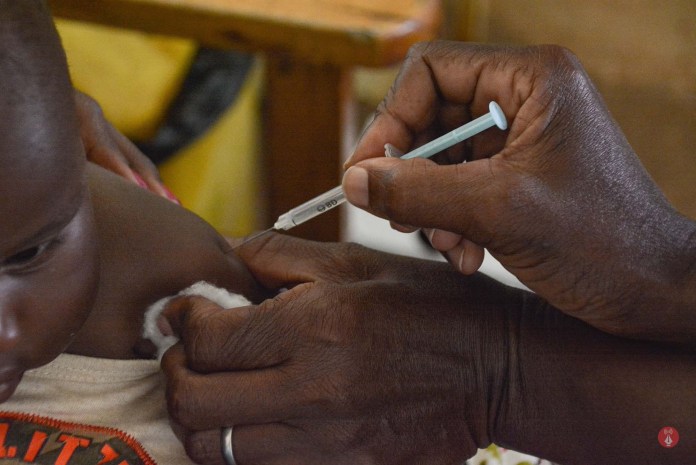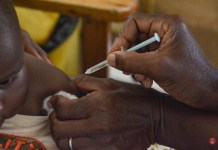Key advisers to the World Health Organization (WHO) have given their approval for the world’s first-ever vaccine against malaria.
Experts on the WHO’s advisory bodies for immunization and malaria conclude that Mosquirix could save tens of thousands of lives that could have been lost to malaria.
The approval means Mosquirix could soon be rolled out to billions around the world.
What is left for a global rollout to kick-start is for WHO itself to give its approval.
Dr Tedros Adhanom Ghebreyesus, WHO’s Director-General, has hinted this will happen.
Commenting on the development, he said he had started his career as a malaria researcher and had “longed for the day that we would have an effective vaccine against this ancient and terrible disease”.
“Today is that day. A historic day. Today the WHO is recommending the broad use of the world’s first malaria vaccine. This long-awaited malaria vaccine is a breakthrough for science, child health and malaria control. Using this vaccine in addition to existing tools to prevent malaria could save tens of thousands of young lives each year,” said Tedros who has had dubious handling of the current COVID-19 pandemic.
Meanwhile, once the malaria vaccine gets approval from WHO, funding for millions of doses will be considered by GAVI, the Bill Gates-dominated Vaccine Alliance, to reportedly ensures low-income countries have access to the life-saving jabs.
Already, Gavi along with global health agency UNAID and the Global Fund to Fight AIDS, Tuberculosis and Malaria have said the breakthrough; “marks a historic achievement in our fight against malaria”.
The vaccine’s effectiveness is low compared to jabs for other diseases, but malaria claims so many lives that the WHO believes it will still prevent tens of thousands of deaths every year.
Malaria resulted in 409,000 deaths in 2019, the vast majority of them in sub-Saharan Africa.
The decision by the Strategic Advisory Group of Experts on Immunization and the Malaria Policy Advisory Group to back widespread deployment follows a pilot roll-out in Ghana, Kenya, and Malawi.
More than 800,000 children in the three countries have been given at least one dose of the vaccine since 2019 as part of the normal childhood immunization programme
The real-world test of the jab showed it prevented 30% of severe cases of malaria.
It also proved safe, with high acceptance by families.
Mosquirix acts against Plasmodium falciparum, which is carried by the Anopheles mosquito and is the deadliest of all the malaria parasites.
Developing a vaccine has proved a major challenge because the parasite is far more complex than a virus or bacteria.
The vaccine primes the immune system to fight the malaria parasite the moment it’s been injected into the blood by a mosquito bite.
A trial on several hundred children released earlier this year showed it prevented 77% of cases, making it even more effective than the Mosquirix shot.



















